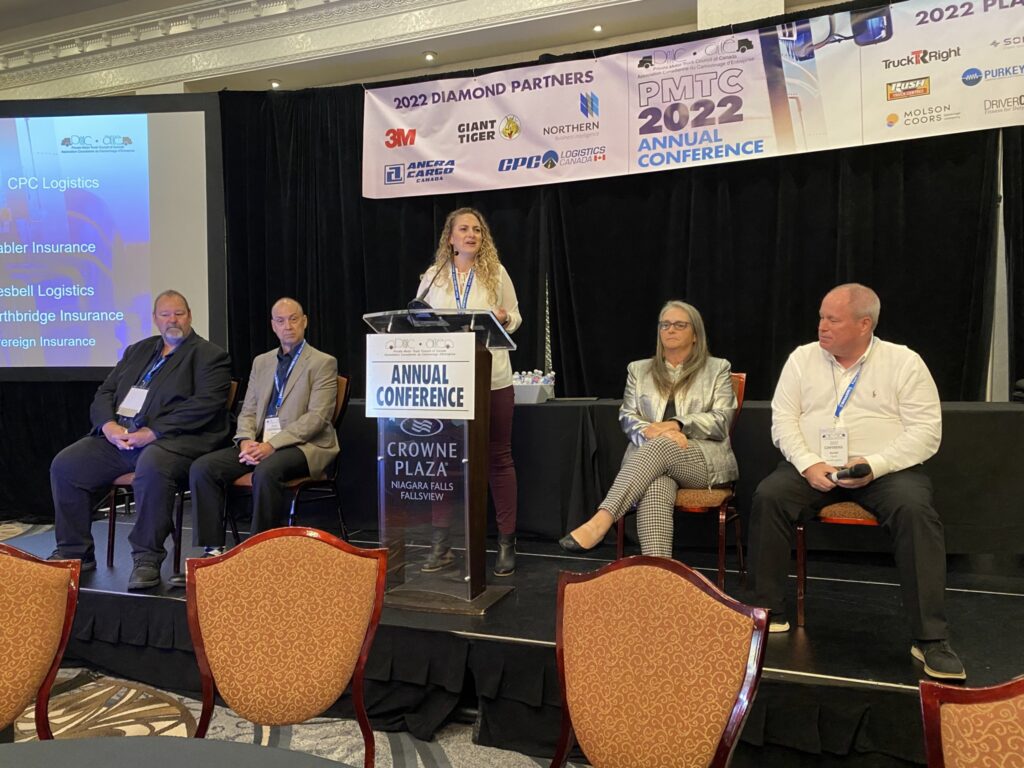Ensure (and accept) a full risk management review of your fleet
David Goruk, Northbridge Insurance’s manager of Ontario and Atlantic risk services, still remembers his first visit to a small mom-and-pop trucking operation in Southwestern Ontario. After a quick review of the paperwork, he stumbled across details about a trip to the U.S.
But there was no DOT number to be found.
“We just go about a mile inside the border and we pick up salt,” the fleet manager replied. “Do we need one of those?”
Yes, they did need one of those.

It’s just one example of the type of gaps that can be uncovered – and addressed – by thorough risk management reviews conducted by insurance providers.
“We’re not inspectors,” Goruk said, during a related panel discussion at the Private Motor Truck Council of Canada (PMTC) annual meeting. “We want to make sure that we understand how the business operates, what you do, how you do it, how you track it … If we see any gaps we can help you. That’s what we’re there for.”
Audit-ready, every day
Insurance broker Lisa Arseneau put it another way. She likes to ask fleets if they are audit-ready, every day.
“We all know what the DOT looks for. We all know what the infractions are,” she said of the work insurers perform during the risk management reviews. But unlike the visits from a government inspector, fleets are not fined for any shortcomings.
The details matter when it comes to insurance coverage as well. If a fleet says it only hires drivers above the age of 21 and with fewer than three demerit points, but an existing employee fails to meet those standards, there could be a steep price to pay after a collision.
“That can be declined for coverage. That can be a reason the claim is not paid,” Arseneau said. “I didn’t write for that because you didn’t tell me that.”
It’s not the only way a fleet can face challenges if its policies are too aggressive.
Kevin Dutchak, the manager – commercial auto risk engineering at Sovereign Insurance, looks for situations where preventive maintenance targets are missed. “It’s trucking. We all get that,” he said. But if a truck is involved in a significant collision after missing a scheduled preventive maintenance check, even by little more than a thousand kilometers, it becomes fodder in a court case.
The fleet might as well add an extra zero to the cost of any legal settlement, he said, stressing the fleets should review all existing safety policies to ensure they reflect operating realities. “Give yourself a bit of a cushion,” he said of mileage-based targets.
“It you’re going to write a policy, you have to follow it,” he added. It’s best to remove a policy for driving in the Rockies if the trucks are limited to an 80-km radius around the Greater Toronto Area.
And the people who participate in risk management reviews can be as important as the policies themselves.
Goruk, for example, likes fleet owners to attend the meetings to help offer a true indication of the company’s safety culture. Red flags also begin to emerge if key members of the safety team can’t answer certain questions because too many issues are left to third-party consultants.
“Anybody who is pertinent to the operation should be there,” he said.
Have your say
This is a moderated forum. Comments will no longer be published unless they are accompanied by a first and last name and a verifiable email address. (Today's Trucking will not publish or share the email address.) Profane language and content deemed to be libelous, racist, or threatening in nature will not be published under any circumstances.